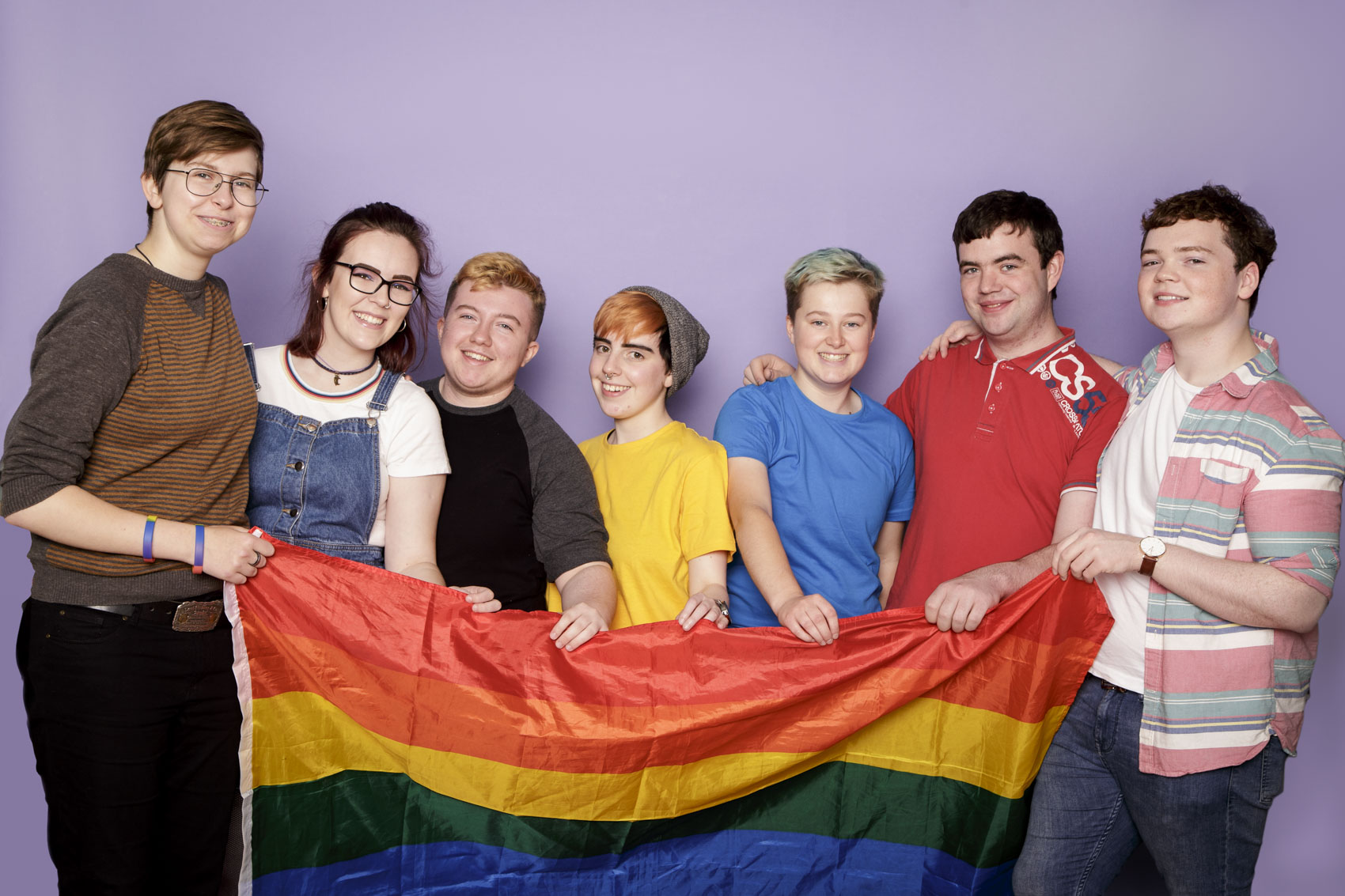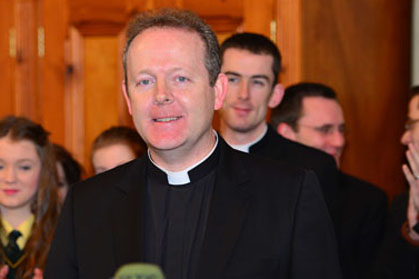
The latest details from the April 2016 census show the vast majority of the population continue to identify as belonging to a religion even as the percentage of Catholics has again decreased while the number of people with no religion continues to increase. The figures published by the Central Statistics Office report that the number of Catholics fell to 3,729,100 from 3,861,300, and comprised 78.3% of the population in April 2016, compared to 84.2% in April 2011. The data represents the first fall in the absolute number of Catholics in Ireland in 45 years. Persons born outside of Ireland comprised 12.0 per cent, or almost one in eight of the State’s total Catholic population in 2016. Figures for the Church of Ireland also showed a decrease while those for orthodox Christians, as well as Jewish and Muslim adherents, showed a marked increase.
The number of people identifying themselves as having no religion increased from 269,800 to 468,400, an increase of 73.6%, and comprised 9.8% of the population.
Overall, Census 2016 results show that Ireland’s population stood at 4,761,865 in April 2016, an increase of 173,613 (3.8%) since April 2011.

The favoured option of FG TDs and Ministers for changing the 1983 pro-life amendment came under fire yesterday from an expert witness due to the degree of uncertainty it would introduce into the law. The Oireachtas committee on abortion considered six options for reform of the Constitution’s pro-life clause and heard the opinion of an expert witness, senior barrister, Nuala Butler SC, as to the legal prudence of each one. The three main choices discussed were to either repeal article 40.3.3 entirely, or amend it to specify grounds for abortion, or replace it with a provision that names the Oireachtas as having absolute authority to legislate for abortion immune from any judicial review or restraint by the Courts. The choice of repeal could itself follow any one of three options: simple repeal without any reference to future legislation; repeal and insert replacement legislation into the Constitution; or, repeal with published legislation waiting to be voted on by the Oireachtas. Of these options, Ms. Butler said the first would give certainty to the law. The second would be cumbersome and make it extremely difficult to make even the slightest change to the law. The third would simply be a political act, giving no assurance that a published bill would subsequently become law. The choice of amending the Constitution could itself be done in two ways. One would be to specify exactly a narrow set of grounds for abortion. The other would be to give more general criteria for abortion in a broad sweep of circumstances. The former is thought to be the favoured option of FG Ministers and TDs, but Ms Butler said this option would be “likely to prove very difficult”, as grounds such as rape or fatal foetal abnormality would present “practical problems arising as to how they should be established and to whose satisfaction”. The latter option, of offering general criteria, would itself carry its own set of difficulties and uncertainties, she said.
The final option, of placing constitutional authority for abortion law entirely in the hands of the Oireachtas and out of reach of the courts, would grant certainty and “give the greatest flexibility in terms of the future content of the law since it would be entirely a matter for the Oireachtas” to determine the legislation.

A taxpayer-funded transgender charity has been banned by the High Court in the UK from any contact with a family after the mother, who was being advised by the group, forced her seven-year-old son to live as a girl.
In a court case, reported last year, Mr Justice Hayden removed the seven-year-old child, known as “J”, from his mother after finding she had caused him “significant emotional harm” and “pressed [him] into a gender identification that had far more to do with his mother’s needs and little, if anything, to do with his own”.
Social services had declined to act against the woman, saying she had “appropriately taken on board support from . . . Mermaids”, a UK transgender charity that receives funding from the Department for Education, the national lottery and the BBC’s Children in Need appeal. However, the Judge accused social workers of “summarily disregarding” many concerns expressed by police and healthcare professionals about the child because they “did not wish to appear to be challenging an emerging orthodoxy in such a high-profile issue”.
The Judge found that the child had been home-schooled and was dressed in girls’ clothes. After being removed from his mother, however, and sent to live with his father and go to school, he had “assert[ed] his own masculine gender” and lived life as a boy.
At the time, Mermaids attacked the “horrific decision”, insisted J wanted to be a girl and said there was “no evidence at all to support this judge’s views”.
Stephanie Davies-Arai, founder of Transgender Trend, a website for parents questioning the diagnosis and treatment of children as transgender, said: “I am concerned that Mermaids is indoctrinating children, scaring parents into thinking that [gender] transition is the only way and intimidating professionals.”
Separately, the Sunday Times also revealed that until last week the same charity, Mermaids UK, was advertising “same day” cross-sex hormone treatment for children, even though National Health guidelines do not allow the treatment, which causes irreversible bodily changes and can compromise fertility, for anyone under 16. When questioned about the advertisement by the Sunday Times, they removed the posting from their facebook page.

An Oxford College banned a Christian student club from participating in its freshers’ fair last week on the grounds that it would be “alienating” for students of other religions, and constitute a “micro-aggression”. The organiser of Balliol’s fair argued Christianity’s historic use as “an excuse for homophobia and certain forms of neo-colonialism” meant that students might feel “unwelcome” in their new college if the Christian Union, a long established student body, had a stall.
Initially the student committee organising the fair wanted it to be a “secular space” on that grounds that, as they couldn’t guarantee all faiths would be present, it would be better to have none. Later they relented and allowed a “multi-faith” stall at the fair, with information about various university religious societies, but barred student representatives of the CU from attending in person and distributing leaflets.
Criticism of the decision rained down on the organisers. Dr Joanna Williams, a university lecturer and author of Academic Freedom in an Age of Conformity, said the decision to ban the Christian Union was “completely bizarre”. “It is intolerance being exercised in the name of inclusion,” she said. “I would argue that a university would be an ideal place for students to explore their religious beliefs. The idea that some religions are not allowed to be represented really prevents students being able to do that. It seems completely bizarre, I am lost for words.”In response to the backlash, the student committee in charge partially reversed itself and decided that the Christian club will be allowed participate at future fairs.

Government Minister, Regina Doherty, said she felt “inspired” after visiting the offices of BeLonGTo which deals with LGBT young people aged between 14 and 23. It is lobbying to make it easier for minors to be legally recognised as their preferred sex, including the category ‘gender, non-binary’ which means the person identifies as neither male nor female.
Of her visit, the Minister said: “I learned from the experts. I heard first-hand of the experiences of being a trans or non-binary young person in Ireland. And I heard from a fantastic mother who explained the trans issue from her perspective.” Doherty added: “I felt so inspired listening to these young people. They were so articulate, so self-aware, so insightful and so brave. And even though they have been hurt by their experiences, they were optimistic, and witty, and even compassionate for those in our society who don’t yet appreciate what it means to be trans or non-binary”.
After the meeting, Doherty, who is the Minister for Employment Affairs and Social Protection, said that she would examine the position of non-binary and young trans people in a review of the 2016 Gender Recognition Act. Under the terms of that Act, an applicant who is 18 years or over is entitled to legally change their sex on all official documents upon request. It also provides for those aged 16 and 17 to apply to a court for an exemption from the minimum age of 18, which the court may grant without the consent of parents.
The proposed new law would allow small children to ‘transition’ from one sex to another if they have the permission of their parents and the approval of doctors.



A liberal abortion law based on the recommendations of the Citizen’s Assembly, allowing abortion without restriction up to 22 weeks, would be roundly defeated if it were put to the people according to the findings of a new Irish Times/Ipsos MRBI opinion poll.
Voters were asked what kind of referendum they would like to see on abortion and were offered three options: amending the Constitution to allow for abortion “in all circumstances … up to the 22nd week of pregnancy”, or to allow it “in limited circumstances such as fatal foetal abnormality, rape or real risk to the life of the woman”; or if they preferred “no referendum at all”. Less than a quarter of voters (24 per cent) favoured the more liberal option, while a majority (57 per cent) were in favour of the more limited option. 10 per cent said they didn’t want a referendum at all and 8 per cent said they didn’t know.
Regarding how they would vote in such referendaa, half of voters say they would vote against the liberal abortion proposal, just over a third (35 per cent) would support it, while 15 per cent are don’t-knows. On the other hand, a large majority (70 per cent) say they would vote in favour of the limited option with just 17 per cent against.

The Oireachtas Committee on abortion has been asked to decide next week whether the Constitution should be amended to transfer all power on abortion law to the legislative process of the Oireachtas and away from the Courts. This was a key recommendation of the Citizens’ Assembly to ensure that the Dáil and Seanad could legislate freely on the subject, without fear of being overturned by the Courts, and would thereby ensure certainty in the law. The proposal was the most far-reaching of the Assembly and viewed as an attempt to absolutely copperfasten a liberal abortion regime in legislation that would follow upon repeal of the Eighth Amendment. So far the Committee tasked with deciding the way forward has heard expert testimony on whether the Eighth Amendment should be repealed, amended or replaced. That first module will conclude next week, and then the committee will proceed to consider possible legislation that could follow upon a successful referendum. PBP member of the committee, Ruth Coppinger, TD, has asked that the body decide next Wednesday what kind of referendum to hold, rather than wait until the end of the committee’s work in December. Ms Coppinger said the idea that the committee should listen to witnesses on an issue now and then wait two months before issuing a decision was “ridiculous”. “My feeling is the committee should make a recommendation on the Eighth Amendment before we move on,” she said before last Wednesday’s session.

Former Trinity College law professor William Binchy has told the Oireachtas Committee on abortion that Ireland has no obligation under international agreements to change its abortion regime. Human rights expert, Christina Zampas, however, said various international human rights bodies have said Ireland’s anti-abortion laws restricted the rights of women. The Irish Human Rights and Equality Commission went much further again and recommended not only that the eighth amendment be repealed in its entirety but that it should be replaced by a radical abortion regime funded by the public purse. Chief commissioner for the IHREC, Emily Logan, however, rejected the use of the term “abortion on demand”, calling it inappropriate and said she preferred the term “requesting healthcare”.
“I don’t hear anything about men ‘demanding healthcare’, so I don’t see why it should be used for women,” she said.